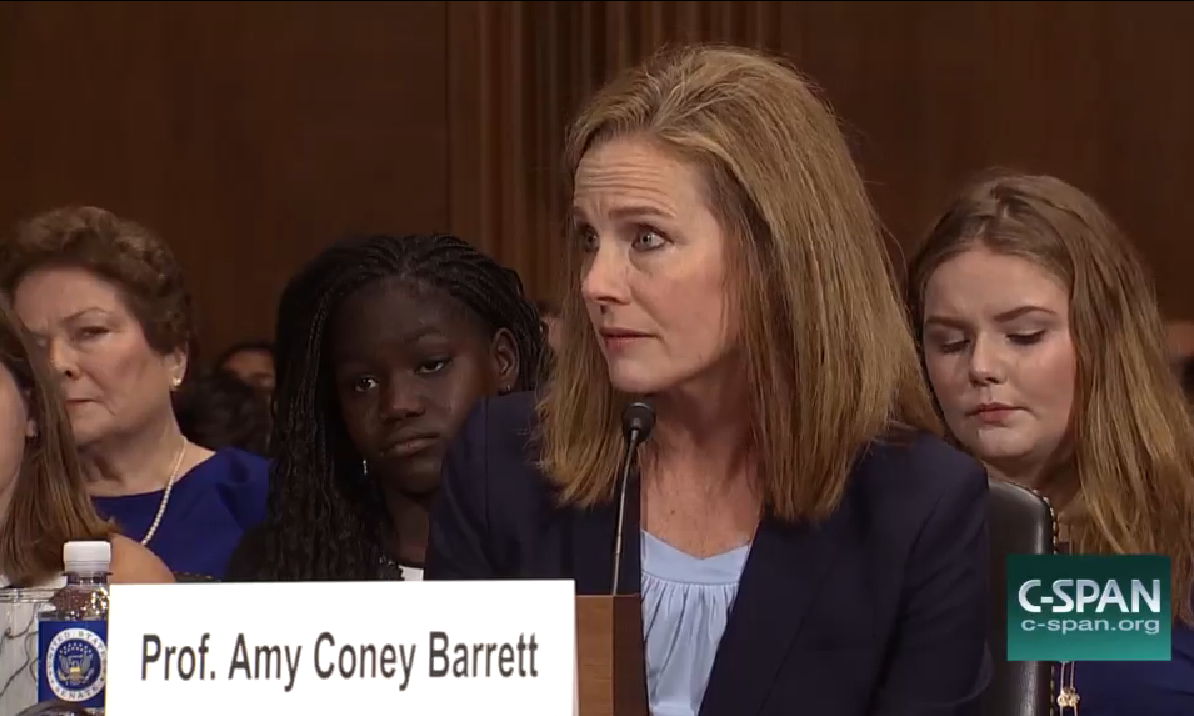Abortion rights, women of color, and LGBTQI+ people are under attack. Pledge to join us in fighting for gender justice.
5 Things You Should Know About Trump’s 6th Circuit Court Nominee


Last month, President Trump nominated John K. Bush to a Kentucky seat on the Sixth Circuit Court of Appeals. Bush’s hearing before the Senate Judiciary Committee is being held this morning. Here are five things you should know about him:
1. He is hostile to the constitutional right to an abortion, as well as other rights protected by the right to privacy.
In a blog post written under a pseudonym, Bush wrote that abortion and slavery are “[t]he two greatest tragedies in our country.” He analogized Dred Scott and Roe v. Wade, writing that both “relied on similar reasoning and activist justices at the U.S. Supreme Court.” Bush also wrote a paper critiquing Kentucky Supreme Court’s privacy caselaw, including cases that set out the rights to abortion and same sex marriage, using disturbing rhetoric and outlining how the state supreme court could curtail abortion rights in future cases. The paper criticized rulings favorable to LGBTQ rights and abortion rights, as well as analyzing two rulings from the early 2000s. Bush argued that these cases offer a potential roadmap for the Kentucky Supreme Court to interpret Roe and its progeny less favorably. Bush also asserted that this authority could also be used to limit the impact of an earlier ruling decriminalizing intimate sexual behavior among LGBTQ people.
2. He has argued for state-sanctioned sex discrimination.
Bush co-authored an amicus brief in United States v. Virginia, advocating for Virginia Military Institute (VMI) to continue excluding women from admission. The brief states that VMI’s military-style education “does not appear to be compatible with the somewhat different developmental needs of most young women,” repeating stereotypes about women to justify their exclusion. The brief argued not only that the Constitution permitted VMI to continue to exclude women, but also that Virginia had no constitutional obligation to provide women with educational opportunities equivalent to those provided by VMI. The brief further argued that striking down VMI’s policy would endanger government funding for battered women’s shelters and rape crisis centers. The Supreme Court struck down VMI’s male-only admissions policy, rejecting the brief’s core arguments.
3. He opposes the Affordable Care Act and has consistently used partisan rhetoric to describe it.
In multiple blog posts (written under a pseudonym), Bush vehemently criticized the Affordable Care Act (ACA). First, he celebrated when he thought the ACA might not be enacted, writing a blog titled “Ding, Dong, the (Obamacare Senate bill) witch is dead!” Once the ACA had been enacted, he argued that it would increase taxes and called in the anonymous blog for it to be “repealed and replaced in the new Congress under the leadership of the new President.”
4. He has been a member of clubs that discriminate against women, people of color, and Jewish people.
The Senate Judiciary Committee questionnaire asks if a nominee is affiliated with organizations that “currently discriminate or formerly discriminated on the basis of race, sex, religion, or national origin.” Bush failed to disclose that The Society of Colonial Wars in the Commonwealth of Kentucky, of which he is a member, only admits men. From 2006-2011, he was also a member of The Pendennis Club, which did not admit women, people of color, or Jewish people for most of its history.
5. He was nominated to a seat held open by Senators McConnell (R-KY) and Paul (R-KY).
McConnell didn’t only hold open a Supreme Court seat for Donald Trump to fill. Both Senators from Kentucky withheld their blue slips for President Obama’s nominee to the Sixth Circuit seat to which Bush has now been nominated, preventing the consideration of Obama’s nominee. Neither Senator seemed to think that filling the seat was a priority during the Obama administration. But now it is apparently so urgent to fill the vacant seat that Bush is part of a packed hearing with another Court of Appeals nominee and a Court of Federal Claims nominee to move his nomination along at the fastest possible pace – a decision that goes against Senate Judiciary Committee tradition.





